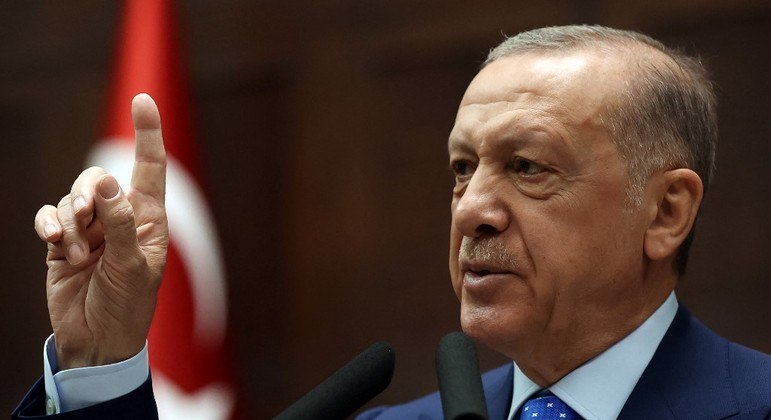Why will Turkey say no to Finland and Sweden in NATO? – News
4 min read
Turkey, through President Recep Tayyip Erdogan and his ministers, has publicly announced this over the past few weeks Vote against Finland and Sweden joining NATO (North Atlantic Treaty Organization).
The United States, the leaders of the military alliance, have already expressed their dissatisfaction with the Turkish position and are trying to negotiate with Ankara to vote in favor of the Finns and Swedes. For a country to join NATO, the 30 member states must vote yes for membership.
For his part, Erdogan has repeatedly said that Finland and Sweden are home to Kurdish terrorists from the Kurdistan Workers’ Party (PKK), who for decades have been seeking secession from Turkey and independence for the southeastern region of the country.
Professor of International Relations at Facamp (Colleges of Campinas) James Onig explains that Sweden’s relationship with the Kurds dates back to the seventies, when a military coup took place in Turkey, which led to the persecution of the peoples of Kurdistan.
There have been Kurds in Sweden for a long time. What the Turks are saying, in fact, is that these Kurds who are in Sweden – many of whom are already fully integrated into Swedish society – contribute, support and support the struggle of the Kurdish people against Turkish rule in Kurdistan. R7.
As for Insper (Instituto de Ensino e Pesquisa) political scientist and professor Leandro Consentino, there is a more decisive contemporary relationship for Finland and Sweden than the issue of the PKK Kurds.
It seems that the main issue of Turkish opposition to the entry of these countries has much more to do with Erdogan’s relations with him [Vladimir] Putin, and Moscow, rather than being associated with this small issue”, highlights Constantino.
Turkey gives trade signals
If initial speculation about Finland and Sweden in NATO did not satisfy Erdogan, the tone of the rhetoric has diminished over the weeks. Countries that are part of NATO and want Scandinavia to join the military alliance have sent delegations to Ankara to talk with Turkish government.
What these countries need to present is a very complex question. In fact, that is what they are looking to discover now,” explains Consentino. “It seems that Erdogan wants to talk and somehow wants to get certain comparative advantages of having these two countries in the bloc.”
Oneg believes that convincing Turkey that Kurds in Scandinavia are not terrorists is a simple task, but other clashes with Western European countries could influence Erdogan’s decision.
Sweden, Finland and some other countries have been highly critical of Turkey’s role in the Syrian crisis. Some say it supports mercenaries, others say it opens up the Islamic State. So it will be very difficult to convince him.”
Turkey has some arguments for compromising the accession of Finland and Sweden to NATO. What could affect Europe the most is the large number of Syrian refugees in Turkish camps – a very sensitive issue on the continent.
Erdogan, if contradicted, if he feels threatened, will be able to release the camps and refugees to Europe. A new wave of refugees in Europe,” says Oneg. “The mainland is very afraid to mess with Turkey.”
“The big question is to know how far Turkish interests go and how close they are to the West or close to Moscow,” Concentino asserts. For now, Erdogan is buying time. This is also valuable in international relations.”
Russian weapons, American fighters
Outside the Black Sea, Turks and Russians share close ties in unsatisfactory deals NATO. Ankara has purchased a series of weapons from Moscow, prompting Washington to suspend deliveries of the F-35 jets that Erdogan has already paid for, worth $1.4 billion.
With a veto against the entry of Finland and Sweden, Turkey can finally negotiate the receipt of these fighters and agree to other demands, such as recognition of the independence and legitimacy of the Turkish Republic of Northern Cyprus.
Turkey has been buying equipment from Russia in recent years and has been criticized even by NATO countries. […] Perhaps the United States will join the fight to help persuade Turkey, and then it changes because perhaps Ankara wants loans and support in the financial renegotiation, because the internal situation is very complicated,” says Ong.
Let’s remember that NATO has the whole brunt, the whole heft, of being an alliance that was forged there in the middle of the Cold War. […] This whole historical question, without a doubt, has great weight and is fundamental to the redesign of these alliances”, concludes Concentino.

“Devoted food specialist. General alcohol fanatic. Amateur explorer. Infuriatingly humble social media scholar. Analyst.”




